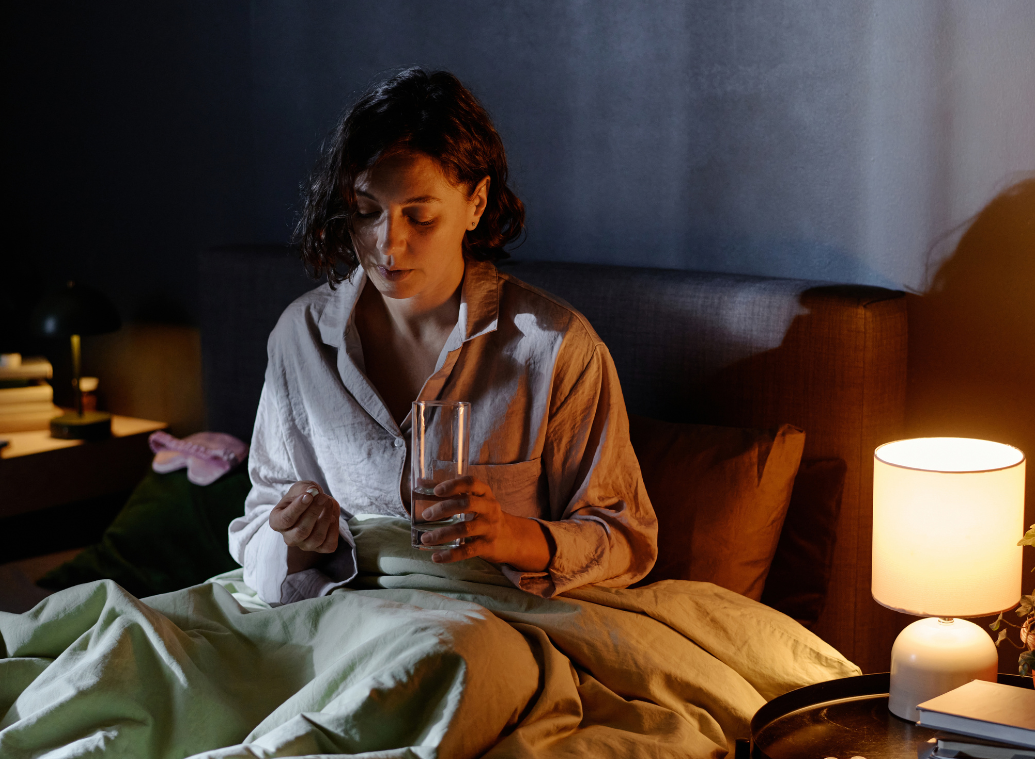- Home
- Forums
- General forums
- Good to know
- Society and its influence on mental illnesses
Society and its influence on mental illnesses
- 81 views
- 1 support
- 11 comments
All comments
Go to the last comment
Unregistered member
Hi @GildaT - great article, thank you. About ten years ago, my work brought me into contact with many 'psychics' and 'clairvoyants'. I was contacted by the 'Hearing Voices Team' from the Newcastle research and teaching hospital to help them get some subjects to take part in their study to determine why some people hearing voices see it as a positive experience, such as the psychics and clairvoyants and some find it scary, life inhibiting and all the rest. This excluded the seriously ill, highly delusional patients, but those who heard voices, but still functioned in normal society.
One of he main things that came out of the study, was that perhaps the biggest factor was peer group and background. Those that grew up in a broad minded, non-judgemental, unprejudiced family environment, were more likely to explore the psychic/clairvoyant. Those that grew up in a more narrow minded, judgemental, prejudiced environment were much more likely to try and hide their symptoms for fear of what their family or peers would think.
In many cases, it was not the voices themselves that they found frightening, indeed, some even found them comforting, it was the fact that they were hearing them that they found the problem, they were frightened of what people would think or say, frightened to admit that they were hearing voices, not frightened by the voices themselves, if you follow that.
I found the whole thing extremely interesting.

Unregistered member
I Think there is still a lot of misunderstanding in society about mental illness and there is so many different types of mental illness that it is not suprising that people with these complaints are wary of letting on what they have.

Unregistered member
It also seems to be a bit of a post code lottery as to how good the care is - different authorities seem to decide to either invest or not invest in mental health provision - we are unfortunately in an area that did not and the care locally is particularly bad.
![]()
sebastian
![]()
sebastian
Last activity on 02/01/2025 at 10:37
Joined in 2015
5 comments posted | 3 in the Good to know group
Rewards
-
Committed
-
Explorer
I have suffered with depression since 1988 but it has taken 20 years to finally be diagnosed as suffering from bipolar type 2.
Now it has taken a further 5 years to be prescribed a balance of medication that, so far, appears to be keeping my moods on a level.
Over the years a prime frustration has been the attitude of many of the psychiatrists: dismissive -take these tablets & see me again on 6 months, oh its your parents fault, etc.
Fully in agreement with Suncatcher2015 in that mental health is continuously at the bottom of the ladder in terms of funding.
13 years ago I was involved in a project entitled Freeway, to support/enable long term mental health sufferers to engage in self esteem groups, access support agencies, research educatin opportunities, gain part/full time employment. The charity who created this project had sourced funding from the EU for two years BUT attempting source additional funds, towards the end of 2 years, was nigh on impossible. The EU decided to direct their resources to the eastern block i.e. Poland, the Czech Republic & so on. For myself, my fellow workers, our clients & the charity it was heartbreaking particularly as it was the most successful project in the charity's history.
It was later discovered that the trust were envious of our success & were in a position to finance us for, at least, an additional year!
In conclusion it was the most memorable, satisfying & happiest period of employment of my life.

Unregistered member
That is awful that it has taken you so long to be diagnosed

Unregistered member
Hi all, I'm suffering so badly with depression it seems that family and friends except for a couple don't understand and because I rarely leave the house I feel so alone, as I'm new to this group I hope to get to know people In the various inner groups. Btw I'm not always this down I do have a good sense of humour lol. Hugs to all, Pat xx

Unregistered member
@Madnan
Welcome, How are you feeling today?
![]()
sebastian
![]()
sebastian
Last activity on 02/01/2025 at 10:37
Joined in 2015
5 comments posted | 3 in the Good to know group
Rewards
-
Committed
-
Explorer
Hi roselilly
Thank you for that comment. To add something I learn't working in the mental health field, trusts talk about setting up a project then have another meeting about funds and then another meeting to set up another meeting and so on ad infinitum.......................!!!
The bureaucracy is now so overwhelming it forced my partner, a Head Occupational Therapist, to retire early because she couldn't do the job she had trained for & was, and still remains, extremely passionate about.
It is a fact that more money is spent on filling in forms, making notes than actually TREATING MENTAL HEALTH SUFFERERS.
![]()
sebastian
![]()
sebastian
Last activity on 02/01/2025 at 10:37
Joined in 2015
5 comments posted | 3 in the Good to know group
Rewards
-
Committed
-
Explorer
Dear Pat
So sorry to hear you are suffering as I did. My initial breakdown in 1988 resulted in my not venturing out for between 6 & 9 months-except to see a doctor.
My Parents were wonderful, supportive, patient, kind & incredibly helpful: however, friends of many years were outrageously judgemental - pull yourself together, 'that's the most pathetic thing I've ever read' was one of a number of debilitating comments made having received letters from me or ring me when your better!
Thankfully over the years I've had a small group of people with the intelligence to understood this awful illness and have never given up. I may not see/talk to them very often but they are always there & never JUDGE me.MY Partner became so incensed with her brother & sister in law who were judgemental when I suffered low moods staying with them - she was shocked at the realisation they were that way. This increased my guilt perception but over time I have managed to rise above it.
I do hope the aforesaid is of some help. I am also very new to this forum but already feel it is somewhere I can freely discuss feelings/events & hopefully encourage others that there is life beyond depression.

Unregistered member
Hi Sebastian
Thank you for your kind words I'm very glad you had great support from your parents and partner it must make such a difference, I'm so happy for you that you have learnt to rise above your guilt perception.
Unfortunately my parents are elderly 90 and 95 and they don't understand that I have physical and mental health issues and sadly my husband and daughters can't handle illness of any kind, my doctors practise have really gone downhill and it's difficult to get an appointment let alone see same dr.
The depression anxiety etc is worse as I feel total burden and very guilty as until 6yrs ago I ran my own successful business which I struggled to keep going but my health eventually let me down and now I'm a virtual recluse in my bedroom.
please excuse me venting but really struggling at the moment, but so happy I found this wonderful site with various groups etc which I'm still discovering.
Your comments have been very helpful and encouraging thank you again.
Give your opinion
Articles to discover...
Subscribe
You wish to be notified of new comments
Your subscription has been taken into account








Gilda
Community managerGood advisor
Gilda
Community manager
Last activity on 03/02/2023 at 15:26
Joined in 2015
710 comments posted | 120 in the Good to know group
Rewards
Good Advisor
Contributor
Messenger
Committed
Explorer
Evaluator
Having a mental illness is a fact that we can’t deny, but what makes a difference, is the way we decide or are taught to deal with this condition.
We have the clear example of a recent study conducted by Anthropologist Tanya Luhrmann. In this study, 60 individuals with schizophrenia; 20 from San Mateo, California; 20 from Chennai, South India; and 20 from Accra, Ghana; where interviewed, and one of the questions was directed to trying to understand how they perceive their inner voices on a daily basis.
The results where revealing, because contrary to what must of us, raised on a western culture, might think, not everyone sees this voices as intrusive or aggressive. Subjects from Accra and Chennai, even though sometimes they hear violent voices, not as often as the Americans do, they state that the voices are mostly good. At times, they hear the voices of family members that encourage them to do good things. One of the Chennai’s participants even said “I have a companion to talk [to]… I need not go out to speak. I can talk within myself”.
Even if the voices were described as positive or negative in nature, in India and Ghana they are seldom seen as a psychiatric or medical issue. Whereas in America, voices are always perceived as in intrusion in their privacy, hence a bad thing and a sign of mental illness that needs to be fixed. Not one subject in America reported a positive experience, contrariwise, they emphasized the violence of the voices and the certainty of this being insane hallucinations.
The research revealed a link between how a culture perceives the mind and how auditory hallucinations are described. In the US and most western countries, the mind is seen as a separate entity from the self. As a result, everything that happens inside that can’t be controlled by oneself, is seen as unwelcomed and a threat. Outside the western world, the understanding of the mind is as part of a whole, interconnected with the self. Therefore, hallucinations and voices are not conceived as intrusive.
For a lot of mental conditions, like schizophrenia, there is not a cure, just medication and therapy. Thanks to this study and previous ones, mainly with bipolar people, that show similar findings, a lot of the therapies for schizophrenia are focused in encouraging the patients to forge relationships with the voices; and for bipolar people, to build a relationship of acceptance with oneself.
At the end, we can see that it all depends on how we take things and the conceptions created by society. Having a mental illness doesn’t mean having to stop your life, or that you need to be institutionalized, you can live with it, or coexist, depending on your vision of your mind and body.
Source:
http://news.stanford.edu/news/2014/july/voices-culture-luhrmann-071614.html
http://www.scielo.br/pdf/rbp/v26s3/en_22342.pdf
https://blogs.commons.georgetown.edu/journal-of-health-sciences/issues-2/vol-6-no-2-july-2012/cross-cultural-variance-of-schizophrenia-in-symptoms-diagnosis-and-treatment/